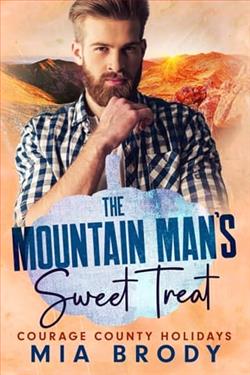Page 44 of The Armor of Light
They all bowed their heads.
The prayer was brief. ‘O Lord, give us the courage to fight for what is right, and the humility to know when we are wrong. Amen.’
‘Amen,’ said Spade loudly.
*
The Bristol to Combe stagecoach stopped in Kingsbridge at the Bell tavern in the market square. Amos and Roger got outside seats. Amos could not afford inside seats and Roger had no money. ‘I’ll pay you back!’ Roger said, but Amos refused. He was fond of Roger, but it was unwise to lend to gamblers.
The coach left the market square and went down Main Street, where most of the houses were now shops. It crossed the river by the double span that was called Merthin’s Bridge after its medieval builder. It went from the north bank to Leper Island, passed Caris’s Hospital, then crossed to the south bank. After that it wound through the prosperous suburb called Loversfield. Amos imagined that long ago this had been a place where unmarried couples went to be alone together. There were no fields here now, though some of the gardens had orchards. Then the coach passed through a long straggle of poorer houses and at last emerged into open country.
It was cold, but they both had massive greatcoats and knitted mufflers and hats. Roger smoked a pipe. At the taverns where the coach stopped to change horses they bought warming drinks: tea, soup, or whisky and hot water.
Amos was buoyed by optimism. It was too soon to rejoice, he told himself, but he could not help thinking that his business could be transformed by Roger’s idea. A machine that could spin eight reels at a time!
They spent the night at a lodging house, then in the morning went to the home of Roger’s friend, Percy Frankland. Percy’s father was prosperous, and welcomed them to a substantial breakfast with his wife and two adolescent children as well as Percy. Amos did noteat much. He felt quite tense about the visit, fearing that his hopes would be disappointed.
Straight after breakfast they went to the warehouse, which was in the grounds of the Frankland home. The lower floor was dedicated to storage; spinning was done upstairs.
When finally Amos entered the spinning room, it took him a long moment to understand what he was looking at; then he realized it was not one but a whole row of spinning engines.
Each machine was like a small table, waist high, about three feet long and half that wide, standing on four sturdy legs. The device seemed to be operated by two people, a woman and a child. The woman stood at one narrow end, the threads stretching to the spindles at the far end. She turned a large wheel on one side with her right hand. The wheel spun the eight spindles that wound the cotton into a tight thread. When she judged the thread was tight enough, she used her left hand to push forward a beam that brought into play eight fresh lengths of loose roving.
There were eight machines in the room.
Amos asked Mr Frankland: ‘What does the child do?’
‘He’s the piecer, he mends broken threads for his mother,’ said Mr Frankland.
They watched a boy of about eleven mending a break. He crawled under the machine to do it, so that his mother would not have to stop work. Cloth workers were paid by how much they produced, never by the hour. The boy took the ends of the two threads and placed them in his left palm so that they overlapped by two or three inches. Then he used his right palm to rub the threads together with short strokes, pressing hard. When he took his right hand away, the two threads had interwoven to become one again. The process had taken a few seconds.
Amos noticed that the boy’s palms were callused from the constant rubbing. He took the boy’s right hand and touched the thickened part.
The boy said proudly: ‘I got hard hands. They don’t bleed no more.’
Amos asked Mr Frankland: ‘Threads must break often, to require a piecer on permanent duty.’
‘I’m afraid they do.’
That was bad news. Amos said to Roger: ‘If cotton breaks often, wool might break all the time. Even hand spinners such as Sal Clitheroe break a thread sometimes.’
Roger said to the boy: ‘Is there a moment, in the process, when the thread is most likely to break? Do you see what I mean?’
‘Yes, master,’ said the boy. ‘It’s when the slack thread is made taut. Especially if the old woman jerks too hard.’
Roger said to Amos: ‘I might be able to do something about that.’
Amos was transported. This machine could provide him with the yarn he needed to expand the business. But it would do more than that. It would remove the need to traipse around the countryside calling on village workers. A room full of spinners in his warehouse could provide more yarn than all the women in the villages. And if one was sick, and could not do her work, he would not have to wait a week to find out. The machine would give him more control.
Suppressing his excitement, he tried to be practical. He said to Mr Frankland: ‘I don’t know whether the spinning jenny could be modified to work with wool, but if I decide it could, where would I go to buy one?’
‘There are several places up north where they make them,’ Mr Frankland said. He hesitated, then added: ‘Or I could sell you one of mine. I’m about to start replacing the jennies with a bigger machine called a spinning mule. It spins forty-eight threads at a time.’
Amos was flabbergasted. ‘Forty-eight!’
Roger commented: ‘Spindles sprouting like rhubarb in May.’
Amos concentrated on practicalities. ‘When do you expect to get your spinning mule?’















